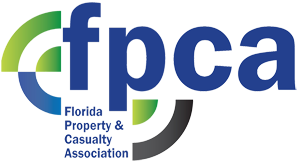Florida Insurance Consumer Advocate Sean Shaw testified this morning, July 14, 2010, before the U.S. House Ways and Means Select Revenue Measures Subcommittee in opposition to the taxing of reinsurance between affiliated entities.
“When elephants fight, the grass gets trampled,” Mr. Shaw said in his written testimony to illustrate his opposition to Subcommittee Chairman Richard E. Neal’s (D-MA) legislation (H.R. 3424). The bill would deny deductions for reinsurance premiums to related foreign entities that exceed an industry average by line of business.
Mr. Shaw presented economic statistics prepared by the Wharton School of Business that forecast a 20 percent decline in total supply of reinsurance if this legislation was passed. According to this data, the proposed legislation would result in Floridians paying in excess of $800 million per year in additional insurance costs, including $266 million per year to insure their homes and $264 million more per year to insure their commercial properties, including condominiums.
“If it was proved to me there would no impact on consumers, I would be fine (with the legislation),” Mr. Shaw said.
In reference to previous attempts to pass similar legislation, Congressman Peter Roskam (R-IL) said, “The Angel of Death passed over these companies last time.”
To view the Florida Insurance Consumer Advocate’s entire written testimony, click here.
William Berkley, Chairman and Chief Executive Officer of the W.R. Berkley Corporation, speculated that his business would expand in the United States if the legislation were passed. Because of the offshore tax benefit currently in effect, jobs associated with reinsurance have left the country, he explained. Therefore, in his opinion, the legislation would have the positive effect of restoring jobs to America.
Congressman Geoff Davis (R-KY) said that Florida’s Commissioner of Agriculture and Consumer Services Charlie Bronson had sent the Subcommittee a letter outlining his concerns about the potential effects of H.R. 3424 on crop insurance.
Mr. Berkley explained that H.R. 3424 would have no effect on crop insurance, because while most of its cost is borne by the federal government, and over 40 percent of the crop insurance underwriters are foreign-owned, it is competition that drives prices, not tax rates. “It’s fallacious thinking by a group of economists,” he added.
Mr. Shaw reminded the Subcommittee members that the price of reinsurance is especially sensitive in Florida and reiterated his opposition to H.R. 3424.
Representative Davis asked each panelist whether the legislation would better be incorporated as a part of a comprehensive tax package. Mr. Shaw said that, at least, the narrower focus of today’s hearing is bringing attention to the issue.
Representative Kendrick Meek spoke, saying that members of both parties have concerns with the bill. “(The bill’s merit) would be good on a sunny day, but this is not a sunny day in the State of Florida when it comes down to the reinsurance issue,” he said.
Representative Meek related that Senator Bill Nelson (D-FL) did not support H.R. 3424.
Mr. Berkley opined to Subcommittee members that the H.R. 3424 would not impact Citizens Property Insurance Corporation’s (“Citizens”) rates, since Citizens does not purchase reinsurance. “None of the Florida issues have anything to do with the reinsurance tax issue,” Mr. Berkley continued. “This is about foreign companies trying to pay the least amount of taxes . . . because billions of dollars are at stake.”
Mr. Degnan volunteered that, while Mr. Berkley’s company did very little business in Florida, his company, Chubb, in fact wrote a great percentage of Florida business. However, he echoed Mr. Berkley’s opinions on the legislation, saying that “If we don’t act, we will find ourselves without a domestic reinsurance industry.”
Mr. Degnan pointed to economic and statistical data in his possession indicating that H.R. 3424 would have no influence on property insurance premiums. In reference to the amount of tax subsidies currently in place for foreign reinsurers, he said “A $17 billion subsidy is not the way to help out homeowners.”
Representative Meek closed the discussion with a reminder that, in these difficult economic times, it is important to assure Floridians that they will not have to take on additional costs such as higher property insurance rates.


Leave A Comment